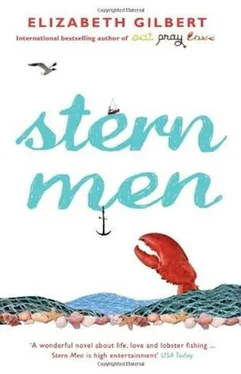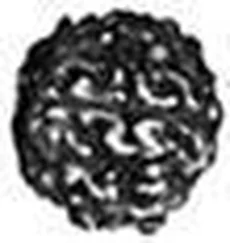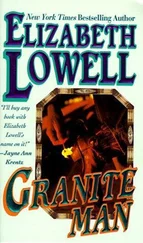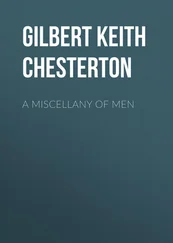So the month of July was almost passed, and then one afternoon Mrs. Pommeroy received a most unusual telephone call. The call came from Courne Haven Island. It was Pastor Toby Wishnell on the line.
Pastor Wishnell wanted to know whether Mrs. Pommeroy would be available to spend a day or two on Courne Haven. It seemed there was to be a big wedding on the island, and the bride had confided to the pastor that she was concerned about her hair. There were no professional hairdressers on Courne Haven. The bride wasn’t young anymore, and she wanted to look her best.
“I’m not a professional hairdresser, Pastor,” Mrs. Pommeroy said.
Pastor Wishnell said that was quite all right. The bride had hired a photographer from Rockland, at considerable cost, to document the wedding, and she wanted to look pretty for the pictures. She was relying on the pastor to help her out. It was a strange request to be made to a pastor, Toby Wishnell readily admitted, but he had received stranger ones. People expected their pastors to be fonts of information on all manner of subjects, Pastor Wishnell told Mrs. Pommeroy, and this lady was no exception. The pastor explained, further, that this bride felt somewhat more entitled than others to ask the pastor so unusual and personal a favor, because she was a Wishnell. She was actually Pastor Wishnell’s second cousin, Dorothy Wishnell, known as Dotty. Dotty was to marry Fred Burden’s oldest son, Charlie, on July 30.
In any case, the pastor went on, he had mentioned to Dotty that there was a gifted hair stylist right over on Fort Niles. That, at least, was what he had heard from Ruth Thomas. Ruth Thomas had told him that Mrs. Pommeroy was quite good with hair. Mrs. Pommeroy told the pastor that she was really nothing special, that she’d never been to school or anything.
The pastor said, “You’ll do fine. And another thing…” Apparently, Dotty, having heard that Mrs. Pommeroy was so good at styling hair, wondered whether Mrs. Pommeroy would also cut the groom’s hair. And the best man’s, if she didn’t mind. And the hair of the maid of honor, the mother of the bride, the father of the bride, the flower girls, and some members of the groom’s family. If it wouldn’t be too much trouble. And, said Pastor Wishnell, while he was thinking of it, he could use a little trim himself.
“Since the professional photographer who is coming is known to be expensive,” the pastor continued, “and since almost everyone on the island will be at the wedding, they want to look their best. It’s not often that a professional photographer comes here. Of course, the bride will pay you well. Her father is Babe Wishnell.”
“Ooh,” Mrs. Pommeroy said, impressed.
“Will you do it, then?”
“That’s a whole lot of haircuts, Pastor Wishnell.”
“I can send Owney to pick you up in the New Hope, ” the pastor said. “You can stay here as long as you are needed. It might be a nice way for you to make some extra money.”
“I don’t think I’ve ever cut so much hair at once. I don’t know that I could do it all in one day.”
“You could bring a helper.”
“May I bring one of my sisters?”
“Certainly.”
“May I bring Ruth Thomas?” Mrs. Pommeroy asked.
This gave the pastor a moment’s pause. “I suppose so,” he said, after a cool beat. “If she’s not too busy.”
“Ruth? Busy? ” Mrs. Pommeroy found this idea hilarious. She laughed out loud, right into the pastor’s ear.
At that very moment, Ruth was down at Potter Beach with Senator Simon Addams again. She was beginning to be depressed when she spent time down there, but she didn’t know what else to do with herself. So she continued to stop at the beach a few hours every day to keep the Senator company. She also liked to keep an eye on Webster, for the sake of Mrs. Pommeroy, who constantly worried about her oldest, strangest boy. And she also went there because it was difficult to talk with anyone else on the island. She couldn’t very well hang out with Mrs. Pommeroy all the time.
Not that watching Webster dig in the mud was still fun. It was painful and sad to watch. He’d lost all his grace. He floundered. He was searching for that second tusk as if he was both dying to find it and terrified of finding it. Ruth thought Webster might sink down in the mud one day and never show up again. She wondered whether that was, in fact, his plan. She wondered whether Webster Pommeroy was plotting the world’s most awkward suicide.
“Webster needs a purpose in life,” the Senator said.
The thought of Webster Pommeroy seeking a purpose in life depressed Ruth Thomas even more. “Isn’t there anything else you can have him do with his time?”
“What else, Ruth?”
“Isn’t there something he can do for the museum?”
The Senator sighed. “We have everything we need for the museum, except a building. Until we get that, there’s nothing we can do. Digging in the mud, Ruth, is what he’s good at.”
“He’s not so good at it anymore.”
“He’s having some trouble with it now, yes.”
“What are you going to do if Webster finds the other tusk? Throw another elephant in there for him?”
“We’ll take that as it comes, Ruth.”
Webster hadn’t found anything good in the mudflats lately. He hadn’t turned up anything other than a lot of junk. He did find an oar, but it wasn’t an old oar. It was aluminum. (“This is magnificent! ” the Senator had raved to Webster, who looked frantic when he handed it over. “What a rare oar this is!”) Also, Webster had uncovered a vast number of single boots under the mud, and single gloves, kicked and and tossed off by years of lobstermen. And bottles, too. Webster had found a lot of bottles in recent days, and not old ones. Plastic laundry detergent bottles. He hadn’t, though, found anything worth all the time spent in that cold, loose mud. He looked thinner and more anxious every day.
“Do you think he’ll die?” Ruth asked the Senator.
“I hope not.”
“Could he snap completely and kill somebody?”
“I don’t think so,” the Senator said.
On the day Pastor Wishnell called Mrs. Pommeroy, Ruth had already been at Potter Beach with the Senator and Webster for several hours. She and the Senator were looking at a book, a book Ruth had purchased for the Senator at a Salvation Army store in Concord a month earlier. She’d given it to him as soon as she returned from visiting her mother, but he hadn’t yet read it. He said he was finding it difficult to concentrate because he was so concerned about Webster.
“I’m sure it’s a super book, Ruth,” he said. “Thanks for bringing it down here today.”
“Sure,” she said. “I saw it sitting on your porch, and I thought you might want to look at it. You know, if you got bored or something.”
The book was called Hidden Treasure: How and Where to Find It. A Finder’s Guide to the World’s Missing Treasures. It was something that, under normal circumstances, would have brought the Senator all sorts of excitement.
“You do like it?” Ruth asked.
“Oh, yes, Ruth. It’s a swell book.”
“Are you learning anything?”
“Not too much, Ruth, to be honest. I haven’t finished it. I was expecting a little more information from the author, to tell you the truth. You’d think from the title,” Senator Simon said, turning the book over in his hands, “that the author would tell you how to find specific treasures, but she doesn’t give much information about that. So far, she says that if you do find anything, it’s an accident. And she gives some examples of people who got lucky and found treasures when they weren’t looking for anything. That doesn’t seem to me like much of a system.”
Читать дальше









